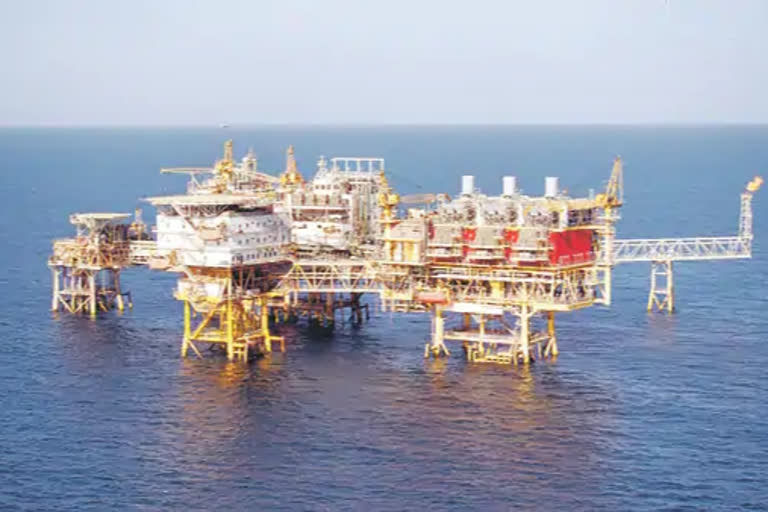New Delhi: Even before the Monsoon unleashes its fury in the oil and gas-rich Bombay High area of the Arabian Sea, the offshore division of the Oil and Natural Gas Commission’s (ONGC) issues an advisory to all its seafaring vessels and installations and to its contractors to either move back to near the shore and ports or to dig into the final positions at sea.
A senior officer who led the division told ETV Bharat on condition of anonymity: “The monsoon begins at the Bombay High area from June-July onwards. But the sea becomes rough and choppy from May 10-15 onwards and it becomes difficult to move the rigs and other installations.”
“Therefore, normally the offshore working season is closed by May 10-15 every year. So all positioning has to be completed before this period. This mainly relates to the positioning and pending work on oil rigs. The status quo is maintained till about September.”
The official added that while the ONGC would have definitely warned the private contractors about the ‘Tauktae’ cyclone along with a map of the projected path of the storm, it is up to the private companies contracted to complete ONGC’s offshore work to take a call whether to stay and work or to leave.
More than 600 people from four barges off the Mumbai coast over the past few days. The worst affected is the accommodation barge P-305 that sank on Monday 35 miles off Mumbai. Search and Rescue (SAR) operations are on to locate the missing members. While 188 people have been rescued as of Thursday evening, 49 bodies were recovered in the SAR operations.
ONGC Tenders for Offshore Work
Private companies bid for the tenders issued by the ONGC indicating the work required to be done especially on the rigs.
Private companies have to comply with information about the barges that will be put to work as ONGC doesn’t own any barge.
The accommodation of the workers on the barges is the responsibility of the private company. ONGC’s mandate is limited to verifying the certification of the barges and the competency of the workers.
ALSO READ: Barge P305 deaths: ONGC must be held responsible, says Nawab Malik
It is also the private contractor’s responsibility to monitor the weather on a daily basis. And it is up to the barge captain or the company owner to decide what to do after receiving the weather warnings. If they think it is safe they will stay back and if they think it is not safe they will inform ONGC that they are moving ashore.
Warnings Ignored
The ONGC and by extension, the private company that operated the accommodation barge P-305 were warned not only by the Indian Coast Guard but also by the Directorate-General of Shipping (DGS) which is responsible for life, health, vessel and the environment for Indian registered ships and ships at Indian ports.
Said a senior DGS official: “We had issued advisories on ‘Tauktae’ to ONGC much before the storm. Why the vessels were not pulled back is a mystery. Perhaps it was overconfidence on part of the ONGC and the private contractors who took it very lightly. They did not expect such high tides which rose to 5-7 metres.”
High-Level Committee
The government has set up a high-level High committee to look into how so many ONGC vessels were left stranded in the cyclone despite official warnings. The committee comprises Amitabh Kumar, director general of shipping, SCL Das, director-general of hydrocarbons, and Nazli Jafri Shayin, joint secretary, defence ministry, and will have to submit its report within a month.
ALSO READ: 34 killed after barge sinks off Mumbai coast; 16 bodies recovered



